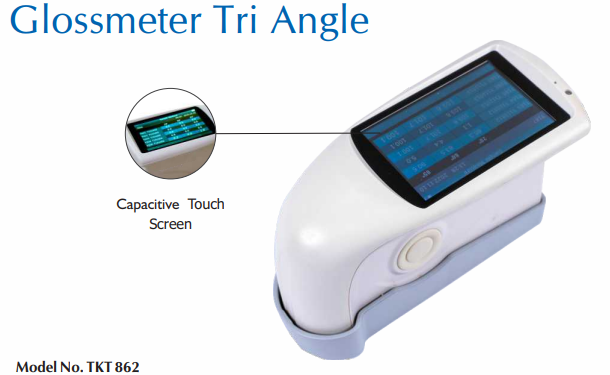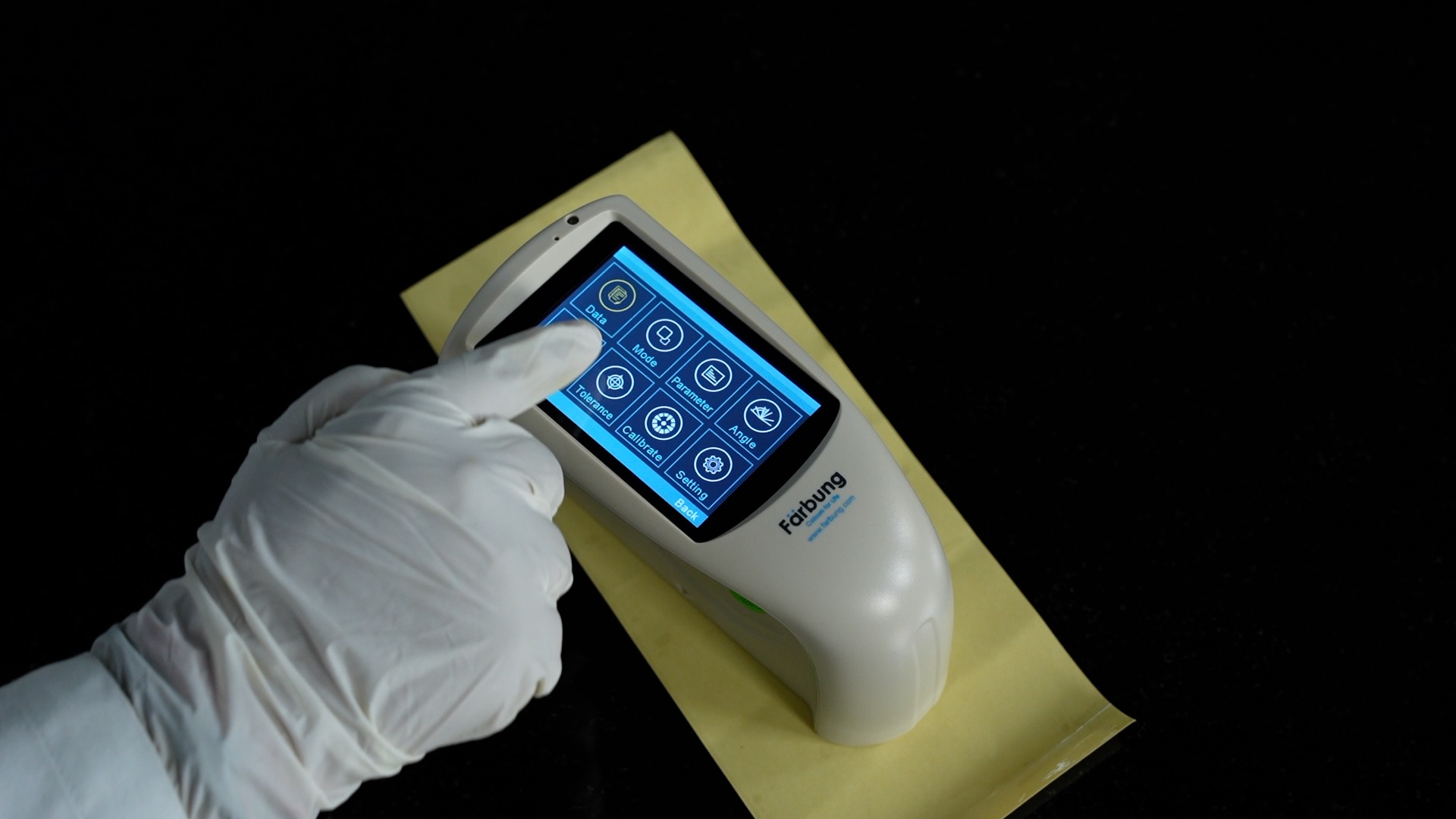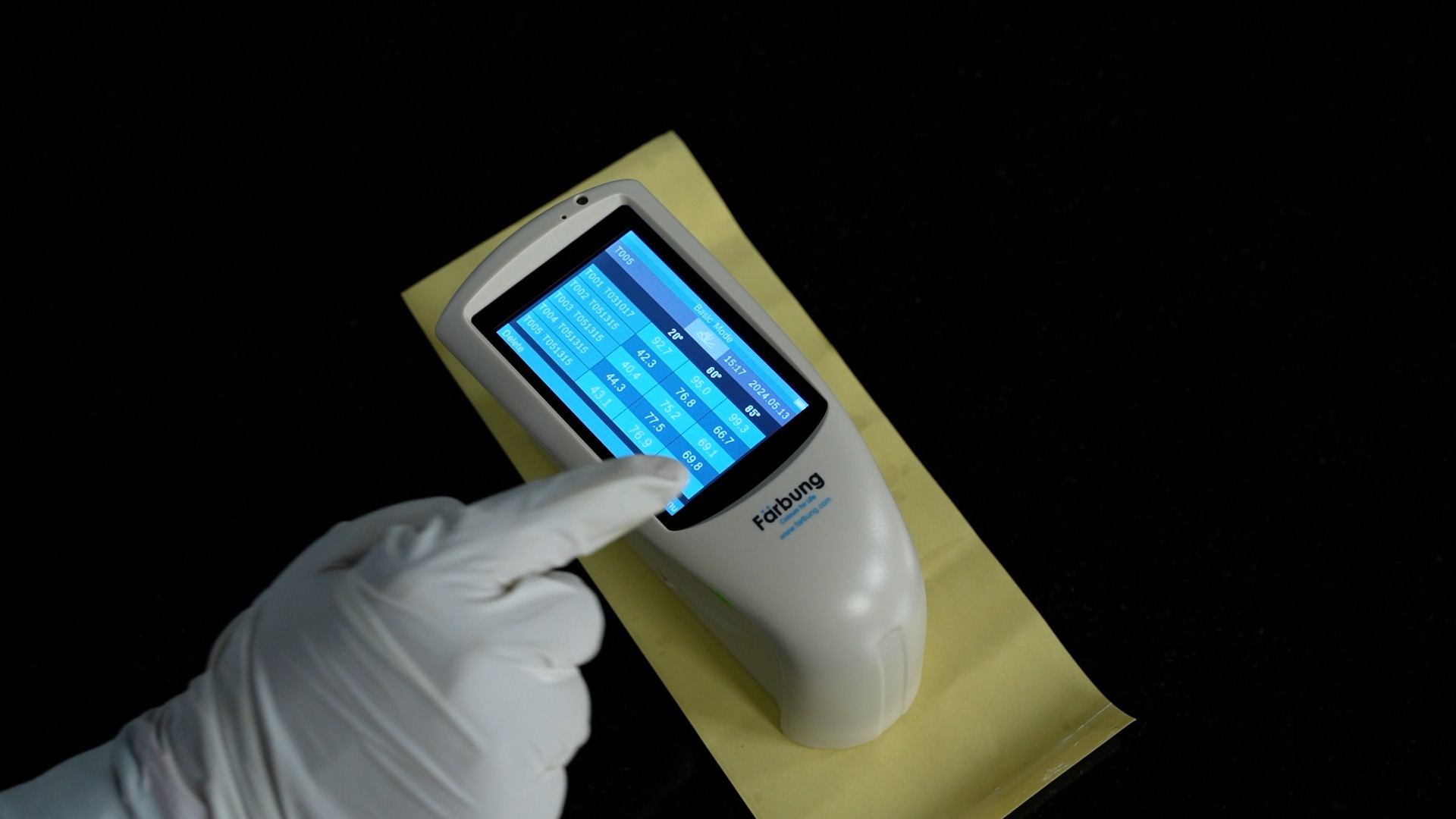- /
- Blog / What Is a Gloss Meter? Working Principle, Uses & Benefits Explained
What Is a Gloss Meter? Working Principle, Uses & Benefits Explained

In today’s quality-conscious industries, surface appearance matter more than ever. Gloss is one such important parameter that defines the visual appeal and quality of materials like paper, plastic, metal and coated surfaces. A gloss meter plays vital role in evaluating surface gloss, enabling manufacturers to maintain consistent standards.
Whether you are in printing, automotive, paint, or plastic industry, understanding how gloss is measured can significantly improved your quality control process. This blog explains what a gloss meter is, how it works, its applications, benefits, and more. We'll also explore FAQs like gloss meter price in India, gloss meter calibration, and others.
What Is a Gloss Meter?
A gloss meter is instrument designed to measure the reflective properties (gloss) of a surface. It quantifies how much light is reflected from material when light strikes its surface at specific angle. The unit of measurement is "Gloss Units" (GU), where higher values indicate shiny surfaces.

How Does a Gloss Meter Work?
The working principle of gloss meter is based on specular reflection. When a beam of light hits surface, some of it is absorbed, and some is reflected. The meter measures intensity of reflected light at a specified angle and compares it to reference standard.

Key Components of Digital Gloss Meter:
- Light Source: Typically LED or tungsten lamp.
- Detector: Positioned at specific angle (like 60°).
- Processor: Calculates gloss values and displays them.

Measurement Angles – What Does 60 Degree Mean?
One of most commonly used configurations is Gloss Meter 60 Degree, ideal for general-purpose gloss measurement across a wide range of surfaces. Other configurations includes:
- 20°: For high-gloss surfaces.
- 85°: For low-gloss or matte surfaces.
Types of Gloss Meters
- Single Angle Gloss Meter: Measures gloss at fixed angle (usually 60°).
- Multi-Angle Gloss Meter: Allows measurement at multiple angles.
- Portable Digital Gloss Meter: Lightweight, ideal for site inspection.
- Benchtop Gloss Meter Reader: Suitable for laboratory precision.
Applications of Gloss Meters
1. Gloss Meter for Printing Industry
In printing and packaging sector, gloss meters help maintain the aesthetic of printed materials. Coated papers and laminated sheets are tested for gloss levels.
2. Paints and Coatings
Manufacturers use gloss meters to assess the finish of coated surfaces to ensure they meets consumer expectations.
3. Automotive Sector
Gloss meters are use to maintain uniform finish on car parts—especially exteriors and dashboards.
4. Plastics and Polymers
Used to verify gloss of plastic sheets, bottles, and molded parts.
5. Metal and Anodized Surfaces
Helps determine gloss of anodized, polished or brushed metal surfaces.
Why Is Gloss Measurement Important?
- Aesthetic Consistency
- Brand Perception
- Process Control
- Regulatory Compliance
Benefits of Using Digital Gloss Meter
✔ Precision Measurement in Gloss Units
✔ Portable and Easy to use
✔ Fast Readings
✔ Data Logging in some models
✔ Battery Backup
✔ Supports Multiple Angles
Choosing the Right Gloss Meter Manufacturer
When selecting a gloss meter, ensure it is from trusted gloss meter manufacturer or supplier. Look for:
- Adherence to ISO/ASTM standards
- Ease of calibration
- Affordable price
Selecting the right gloss meter manufacturer is crucial for accurate and reliable surface finish evaluation. Look for a company that offers the Best instruments, complies with international standards, and provides strong after--sales support. Presto Group stands out with its advanced technology, easy calibration, durable design, and industry trustmaking it a preferred choice across various sectors.
Gloss Meter Calibration: Why It Matters
Gloss meters can drift from their standard settings due to environment or frequent use. Gloss meter calibration ensures measurement accuracy by:
- Comparing it to a reference standard tile.
- Adjusting internal software for correct readings.
Calibrate your gloss meter periodically (as recommended by the manufacturer) to maintain accuracy.
Gloss Meter Price in India
The gloss meter price in India depends on:
- Type and model
- Digital features
- Brand reputation
Average Price: INR78000, INR3,00,000+
Investing in a reliable gloss meter pays off through consistent quality control and reduced production losses. To get the best deal, always opt for an authorized gloss meter supplier.
Ensure Shine, Ensure Quality – Final Words
A gloss meter is essential for maintaining surface finish and quality control across industries. From printing to plastics, it helps in delivering consistent product appearance. Choosing the right gloss meter manufacturer and ensuring regular calibration will help you stay ahead in quality assurance.
Get high-quality gloss meters tailored to your industry needs—call +91 9210 903 903 or email us at info@prestogroup.com today.
Need help? Our team is just a call away.
FAQs – Gloss Meter & Gloss Measurement
Q1. What is gloss measurement and why is it important?
Gloss measurement quantifies the reflection of light from a surface. It is vital for quality control in industries like paints, printing, and plastics to ensure a consistent and appealing finish.
Q2. How does a gloss meter reader work?
A gloss meter reader uses a light source and detector placed at a specific angle (like 60°). It measures the intensity of light reflected from a surface and converts it into gloss units.
Q3. What does a gloss meter 60 degree measure?
A 60-degree gloss meter is a general-purpose instrument that measures gloss on medium to high gloss surfaces. It provides a standard angle for assessing surface finish across various industries.
Q4. How is gloss meter calibration performed?
Gloss meter calibration involves using a certified calibration tile with a known gloss value. The meter is adjusted to match the tile reading, ensuring it delivers accurate measurements consistently.
Q5. What is the gloss meter price in India?
The gloss meter price in India varies from Rs 78000 to Rs 3,00,000+, depending on brand, features, and type. For the best value, buy from reputable gloss meter manufacturers with after-sales support.INR 3,00,000+
Recent Blogs
- Compression Testing Machine Operating Method & Packaging Strength Testing Applications
- Bottle Cap Torque Tester Digital Torque Testing for Packaging Quality Control
- Controlled Humidity Chamber: Environmental Testing Methods, Applications & Packaging Testing Use Cases
- Spectrophotometer & Portable Spectrophotometer: Working Principle and Laboratory Applications
- Paint Tester & Coating Testing Equipment: Types, Testing Process, and Industrial Applications



